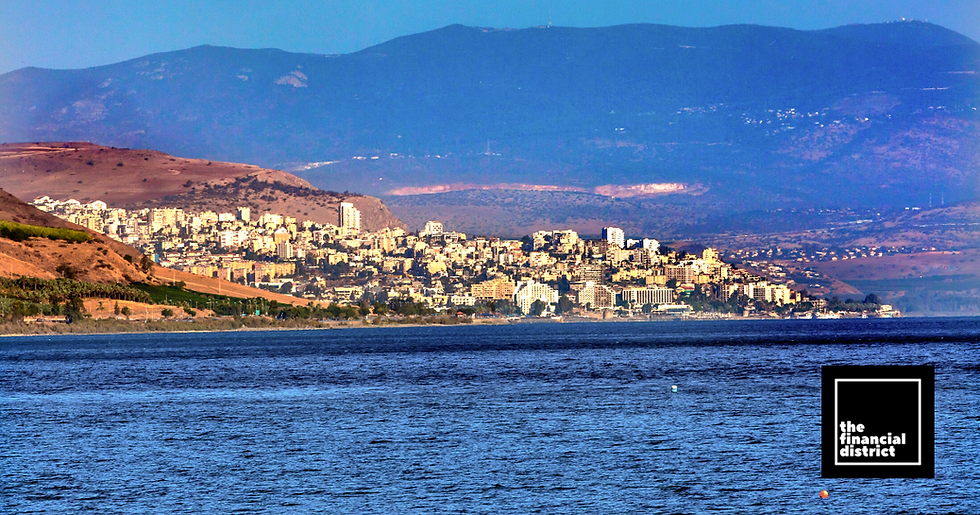Israel To Pump Water From The Mediterranean To Sea of Galilee
- By The Financial District

- Aug 22, 2022
- 3 min read
Despite its name, the Sea of Galilee in northern Israel is actually a freshwater lake, and it's one that has sustained life for millennia.

Photo Insert: The climate crisis is causing huge fluctuations in the lake's water levels.
Even today, the lake irrigates vineyards and local farms that grow everything from green vegetables to wheat and tangerines. Its archeology, hot springs, and hiking trails bring tourism and livelihoods to local communities, Hadas Gold reported for CNN on Aug. 20, 2022.
But this place of religious pilgrimage — where the New Testament says many of Jesus' miracles were performed — is facing a bleak future. The climate crisis is causing huge fluctuations in the lake's water levels.
The Israeli government is hopeful it has a solution: It plans to pump water from the Mediterranean Sea, take the salt out of it and send it across the country to top up the lake when needed.
It's a dramatic change for the Sea of Galilee, called the Kinneret in Hebrew, which once pumped out nearly all of Israel's drinkable water. The water will now flow in the opposite direction. Five desalination plants along the coast that run on natural gas now provide nearly all the tap water for the country's 9.2 million people.
Within months, the new $264 million pipeline is expected to be functional, and will be able to move 120 million square meters of water per year, but will only pump to the lake when necessary, Ben Shoa, head engineer at Israel's national water company, Mekorot, said. "The uniqueness of this project is that it gives us almost infinite flexibility," he said.
"We can basically take the water where it is available ... and just divert it and transport it to wherever it is needed. In the population centers, for agricultural or industrial uses as well."
Despite a ban on pumping water from the lake, water levels here still reached a record low.
"They looked into the future climate change, and what's going to happen [with] rainfall in this area, and also looked at the increase in population and projected increase in demand of water," Gideon Gal, senior scientist and head of the Kinneret Limnological Laboratory, told CNN.
"And they realized that 30, 40 years from now, there's going to be a serious problem in maintaining [water] levels in the lake, and maintaining water quality unless something is done."
But that something had never been done before. Even if salt were removed, the makeup of the water is also different in other ways, Gal said. "When you mix desalinated water with natural water, you see an impact on the biology in the experiments," he added. "We'll be bringing things to the lake that may not exist naturally."
But so far, Gal says their experiments show the new water won't cause a huge impact on existing species. In fact, it may even help the lake combat the effects of climate change by causing a higher rate of water turnover, which helps prevent too much bacterial growth and could help cool the water's temperatures. Even with the potential benefits, Gal said he wished the lake didn't need any human intervention.
"But given what we think we know about climate change, and what's going to happen in the lake," Gal said. "The risk of introducing desalinated water is a risk that is worthwhile taking."





![TFD [LOGO] (10).png](https://static.wixstatic.com/media/bea252_c1775b2fb69c4411abe5f0d27e15b130~mv2.png/v1/crop/x_150,y_143,w_1221,h_1193/fill/w_179,h_176,al_c,q_85,usm_0.66_1.00_0.01,enc_avif,quality_auto/TFD%20%5BLOGO%5D%20(10).png)













